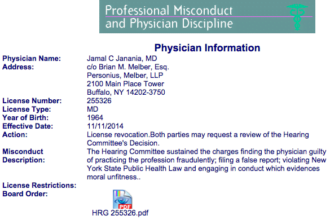Many say medical practice is out of balance and that this lack of balance, even with much needed reform, is going to bankrupt healthcare systems in the developed world. There is too much testing, over-medicalization, over-prescribing and this is driven by the for-profit medical-industrial complex. I am not a doctor, so I cannot judge on this imbalance, only comment on my perception of the discussion about it.
Many say medical practice is out of balance and that this lack of balance, even with much needed reform, is going to bankrupt healthcare systems in the developed world. There is too much testing, over-medicalization, over-prescribing and this is driven by the for-profit medical-industrial complex. I am not a doctor, so I cannot judge on this imbalance, only comment on my perception of the discussion about it.
I’m employed by a company often considered part of the medical-industrial complex. My colleagues and I talk, all the time, argue, discuss, and research, and most importantly, make decisions intended to reduce the cost of healthcare. So what’s going on? Why the disconnect? We don’t want to be part of the problem; we’re in this to be part of the solution.
Is it culture?
Could it be that there are causes on both sides of the equation? Do the cultures of physicians and that of the industries (like the one I work in, that help physicians do their jobs), unwittingly collude to tip healthcare into this imbalance?
Technological and scientific advances, new drugs, new diagnostics, new therapies are usually more costly in the first instance than those they supercede. This, goes the narrative, leads to the inexorable rise in costs.
Because doctors, being culturally risk averse, hold no quarter in “getting the best available” for their patients, and patients, understandably, exacerbate this by demanding “the best, the latest”, even if “the best, the latest, available” is not really proven to be the “best known option” for a patient.
The medical-industrial complex, being culturally innovative, strives to produce better and better technologies, drugs and therapies to satisfy this insatiable demand of the patient-physician nexus, no matter how incremental the proven benefit.
#showmethedata
Therein, for me, lies the rub: the proven benefit. If doctors were more demanding of solid evidence for the efficacy and value delivered by medical & pharmaceutical innovations AND the medical technology and pharmaceutical industries were committed to open, transparent and rigorous demonstration of that efficacy and value, this could help reduce healthcare expenditure on “expensive and ineffective new medicines and technologies”.
The good news is there is a rising clamour on both sides beginning to agree that is beginning to spill over into public consciousness. This can only be a good thing: Campaigns such as http://choosingwisely.org/ and the rising popularity of http://www.cochrane.org activity in the reporting lay press, the position taken by research funders such as the Wellcome Trust on open data reporting, and the increasing popularity globally of health technology assessments (HTA) and comparative effectiveness research (CER), the work of England’s NICE, and not least activism by the likes of Ben Goldacre, are all pushing patients, policymakers, physicians and the industries that support healthcare delivery into candid assessments of the clinical (and often economic) value of innovation in health.
It’s not the solution, but it is part of the solution.
—
This post inspired by a year’s thinking on this NEJM article by Dr Sean Palfey and sparked by this Mother Jones post.









